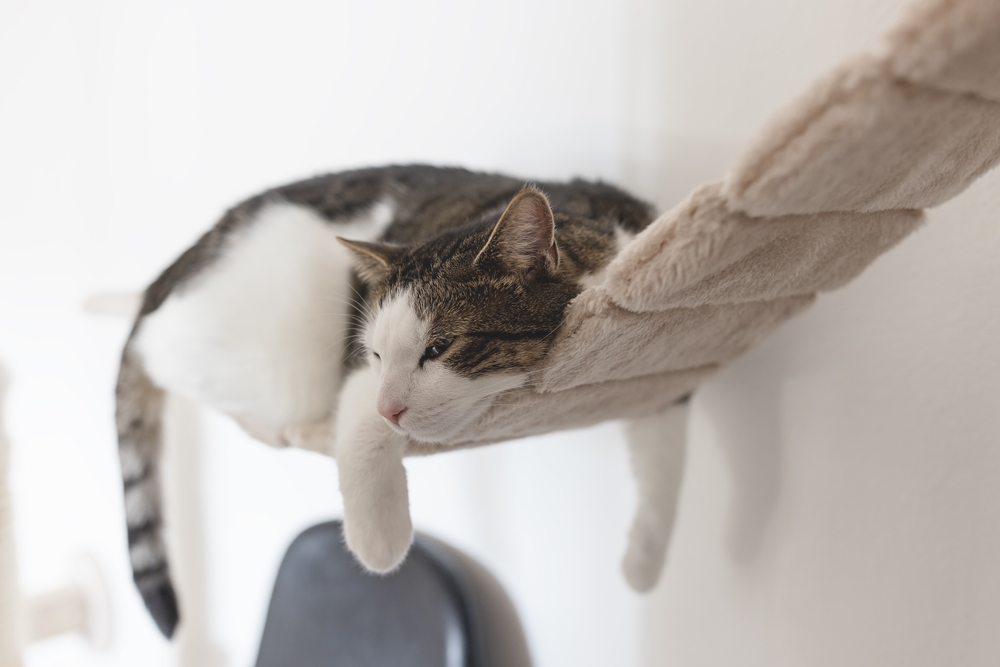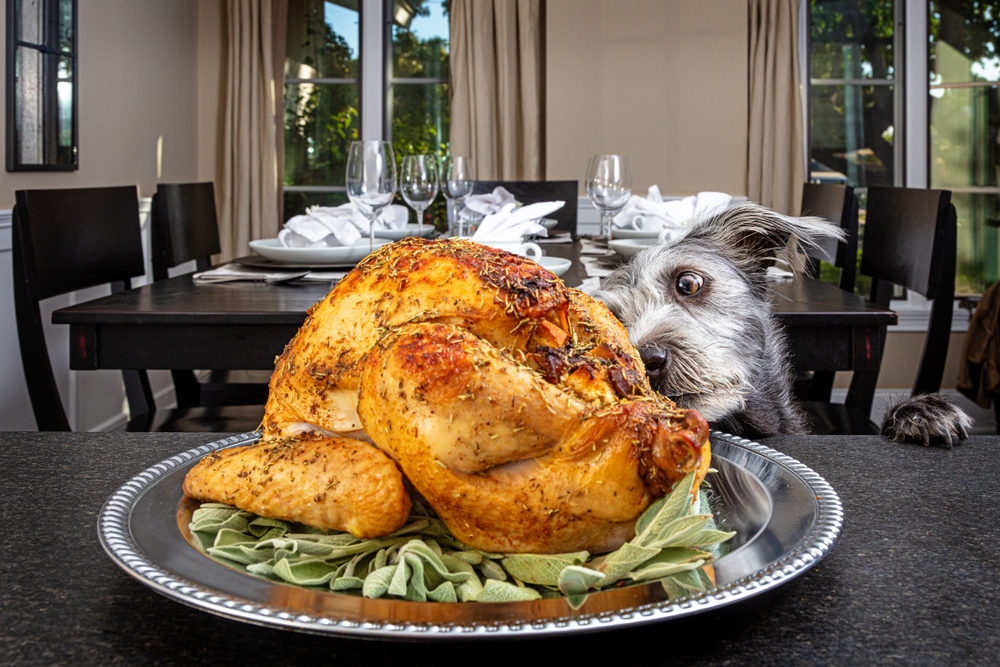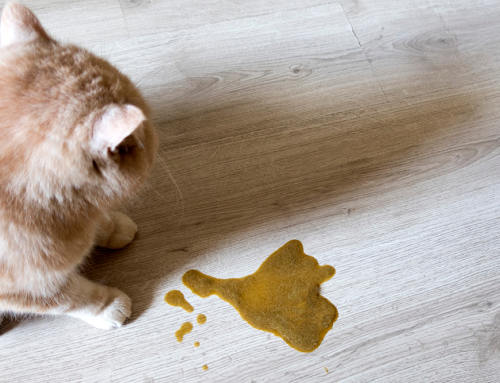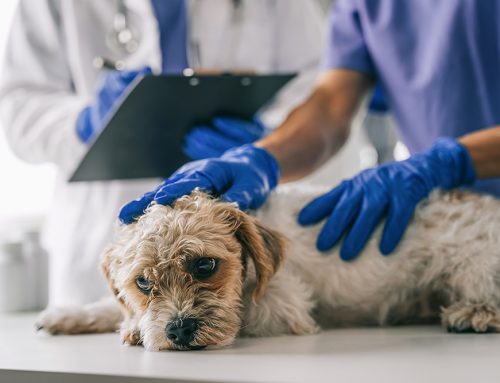Thanksgiving is a nice break from school and work and a chance to gather with family and friends, but this holiday is packed with potential pet dangers. Indulgent foods, strange visitors, and travel can threaten your furry pal’s health, but you can take simple steps to reduce those threats. The Wellness Animal Hospital team wants you to avoid an impromptu hospital visit, so you can enjoy your day without worry. Here are our top pet-safety tips to implement this year.
#1: Keep pets out of the kitchen and dining areas
Holiday foods and baked goods pose a significant danger to pets, because of the many toxic ingredients, including chocolate, xylitol, raisins, macadamia nuts, onions, and garlic. Additionally, fatty foods or simply an overindulgence in treats can lead to pancreatitis, a serious illness requiring hospitalization. Pets who steal food from countertops, hoover up food that falls on the floor, or beg guests for scraps could end up sick. Rather than trying to police your pet’s every move when you are so busy, keep them out of the food prep and eating areas entirely. Use crates, baby gates, or doors, as necessary.
#2: Block your pet’s access to the door
If you’re hosting the Thanksgiving dinner, the door will be frequently opening and closing as people come and go, making slipping through the door easy for escape artists or anxious pets. Consider keeping your pet in another room or blocking their access to the entryways with baby gates. This will also keep exuberant pets from overwhelming guests as they arrive.
#3: Take the trash out immediately after clean-up
Food-containing trash is extremely tempting for curious or hungry pets and another easy way for pets to ingest toxic ingredients, fatty foods, or inedible items that can get stuck in their digestive tract. After cleaning up, take the trash to the outdoor bins right away.
#4: Make pets their own feast rather than sharing yours
Some guests or pet owners save bits and pieces from their meals to share with pets afterward as a treat but, again, these foods can harm pets and should be avoided. Instead, cook them a feast of their own. Stick to small amounts of plain, skinless white turkey meat and root vegetables (e.g., carrots, potatoes) cooked without butter, oil, or spices. For dessert, bake a pet-friendly pumpkin- or oat-based pet treat.
#5: Avoid giving turkey or ham bones to dogs
Cooked meat bones seem like a great chew toy for dogs, but they can splinter easily while being chewed and can perforate or become stuck in the digestive tract of pets who swallow the pieces. These are serious conditions that can quickly become life-threatening, as gut bacteria leak out into the rest of the body. Seek emergency care if your pet swallows a cooked bone.
#6: Book boarding reservations well in advance
Boarding facilities book up for holidays extremely far in advance. If you know you’re traveling and your pets need to stay behind, book their stay as soon as you can. Consider alternatives, such as in-home pet-sitting and walking services, if your pet would rather stay in their home environment.
#7: Plan ahead if you are traveling with your pet
Traveling with your pet solves the problem of finding someone to care for them while you’re away, but comes with its own challenges. Traveling by air or across state lines by car requires a health certificate, which our veterinary team can provide at a pre-travel visit. In case of emergency, take your pet’s important medical records with you, as well as extra food and medications should your travel be delayed.
#8: Provide stressed or anxious pets with a quiet retreat

Many pets, especially cats, feel stressed when guests come into their homes. Ensure shy or stressed pets have a safe, quiet place, such as a back bedroom, laundry room, or crate, where they can stay until guests leave. Provide comfortable blankets, familiar toys, and soothing background music.
Holidays can get hectic quickly, but keeping these tips in mind will ensure your pet stays safe amid the hustle and bustle. However, if your pet foils your efforts and eats toxic foods, contact the ASPCA Animal Poison Control Center or Pet Poison Helpline, and then seek veterinary care with our Wellness Animal Hospital team or your nearest emergency facility. Call us to schedule a pre-holiday visit and for all your pet’s urgent care and routine veterinary needs.







Leave A Comment